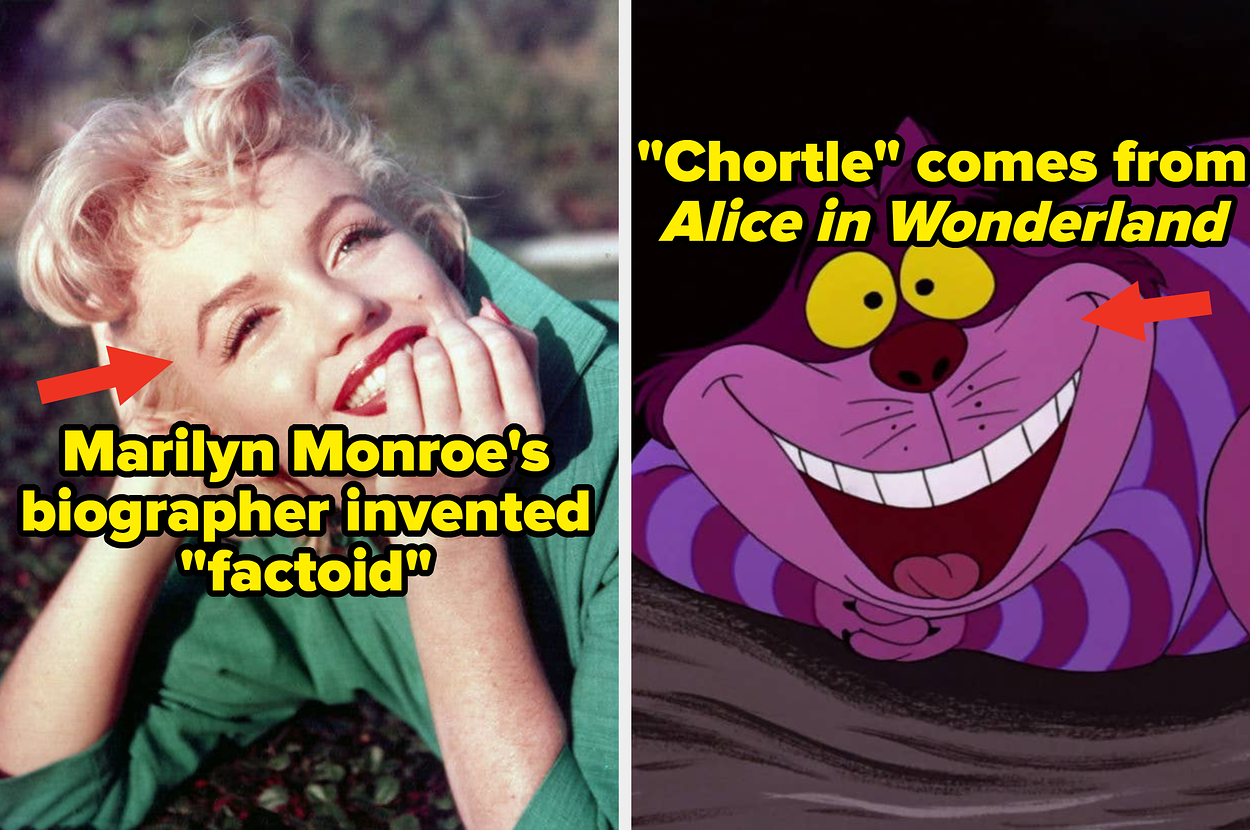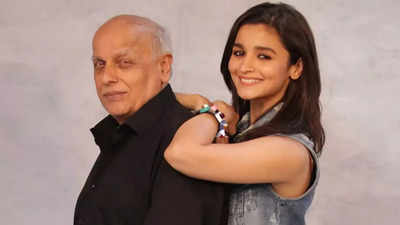Books · Posted 1 minute ago "Robot," "Freelance," And "Scientist" Were All Invented By Writers, And 15 Other Words Authors Literally Wrote Into Existence Wel only call it a "Catch-22" because publishers decided against the title "Catch-18" at the last minute. by Amy Glover BuzzFeed Staff Link Facebook Pinterest Twitter Mail We've written before about the words which were invented by TV and movies (did you know "core memories" probably came from the first Inside Out film?). So, we thought we'd share the words and phrases authors created, too — it's amazing how many of these slipped into everyday use.
Enjoy! 1. According to Merriam-Webster , Richard Dawkins invented the word "meme" in his 1976 book The Selfish Gene . Don Arnold / Getty Images He called it "a unit of cultural transmission," explaining, "Just as genes propagate themselves in the gene pool by leaping from body to body via sperms or eggs, so memes propagate themselves in the meme pool by leaping from brain to brain via a process which, in the broad sense, can be called imitation.

" 2. "Chortle" comes from Lewis Carroll 's Jabberwocky poem, which was a part of his 1871 Through the Looking-Glass, and What Alice Found There novel. Walt Disney Studios Motion Pictures The Jabberwocky poem was full of "nonsense" words, like " Callooh! Callay", which never caught on.
But "chortle," from the line "O frabjous day! Callooh! Callay! / He chortled in his joy" stuck. 3. "Catch-22" comes from the title of Joseph Heller’s 1961 book by the same name — though it was originally called Catch-18.
Brazzo / Getty Images/iStockphoto They changed the number because Leon Uris's Mila 18 had just been published, and they didn't want to two to be confused. The "catch-22" in the book was that its main character , a pilot, could surely only want to want to fly a plane under such dangerous circumstances as war if he was mentally unwell; but mental illness meant he wouldn't be allowed to fly. If he asked not to fly, that would have been the only proof he was sane enough to fly (you can see why we use it to mean lose-lose, circular situations, right?) 4.
Milton came up with the word "pandemonium" in the epic poem Paradise Lost , which Merriam-Webster says he invented because he "needed a name for the gathering place of all demons." Duncan1890 / Getty Images There's no record of the word being used before the publication of Milton's famous poem, in which he writes, "A solemn Councel forthwith to be held /At Pandæmonium, the high Capital / Of Satan and his Peers." He likely created the word from the Greek "Pan", meaning all, and late Latin's "daemonium," from Ancient Greek's "daimónion," meaning demons.
5. "Serendipity" was invented by Horace Walpole, author of The Castle of Otranto , in a 1754 letter to Horace Mann. Vincevoigt / Getty Images / Maica He was inspired by a Persian story "The Three Princes of Serendip," which had been translated into English via an Italian version.
"Serendip" or "Serendib" was an old Persian word for Sri Lanka. The author described his new word to his friend as "always making discoveries, by accidents and sagacity, of things which they were not in quest of." 6.
The English word "robot" comes from Karel Čapek's 1921 play R.U.R (Rossum’s Universal Robots).
Carol Yepes / Keystone / Stringer Getty Images First shown in Prague, the play was then put on in New York and was translated into 30 different languages. However, "robot" stayed constant throughout all versions (including the English one). The author has since spoken out about how his word has been used, writing , "the author cannot be blamed for what might be called the worldwide humbug over the robots.
The author did not intend to furnish the world with plate metal dummies stuffed with cogwheels, photocells, and other mechanical gizmos." 7. Though "utopia" already existed before 1517 and had a (contested) Greek definition, Thomas More's book Utopia gave it the English meaning.
Nastasic / Getty Images The book was originally written in Latin, and focused o n "an island community with an ideal mode of government." The original Greek word may have meant "nowhere," though some academics think it could have been a play on "happy place" ( per the BBC ); either way, the English definition comes from More. 8.
"Cyberspace" comes from William Gibson's 1982 short story Burning Chrome. Whatawin / Getty Images He's since shared with The Paris Review ; "The first thing I did was to sit down with a yellow pad and a Sharpie and start scribbling – infospace, dataspace. I think I got cyberspace on the third try, and I thought, oh, that's a really weird word.
I liked the way it felt in the mouth – I thought it sounded like it meant something while still being essentially hollow." 9. The English word "malapropism" comes from Irish playwright Richard Brinsley Sheridan via The Rivals.
Hulton Archive / Getty Images In his play, the character Mrs. Malaprop (from the French mal à propose, meaning "inappropriately"), loves using long words that she doesn't quite understand. Hence, the English word — referencing Sheridan's play's character — came to mean a misused word.
10. "Freelance" seems to have come from Sir Walter Scott's 1819 book Ivanhoe , meant to describe Medieval soldiers with no allegiance to any one lord. Heritage Images / Getty Images "I offered Richard the service of my Free Lances, and he refused them – I will lead them to Hull, seize on shipping, and embark for Flanders; thanks to the bustling times, a man of action will always find employment," the book reads , referring to mercenaries who offered to fight for whatever army paid the most money.
There's no earlier record of the word. 11. "Beatnik" was created by San Francisco Chronicle columnist Herb Caen in 1958.
William87 / Getty Images/iStockphoto The term, which refers to "a usually young and artistic person who rejects the mores of conventional society," was created by the writer to describe some party-goers. The columnist was later quoted as saying , "I coined the word 'beatnik' simply because Russia’s Sputnik satellite was aloft at the time and the word popped out." 12.
The word "factoid" was likely invented by the author Norman Mailer in his biography Marilyn Monroe . Baron Mailer defined the term as "facts which have no existence before appearing in a magazine or newspaper, creations which are not so much lies as a product to manipulate emotion in the Silent Majority.” 13.
Poet, philiosopher, historian, and mathematician William Whewell seems to have invented the English word "scientist" in response to a challenge by poet S.T. Coleridge in 1833.
Education Images / Universal Images Group via Getty Images Before then, your only options were "natural philosopher" and "man of science," the Stanford Encyclopedia of Philosophy writes. The word was first published in an anonymous entry in the Quarterly Review (it wasn't so anonymous academics couldn't ascribe it to Whewell, though). 14.
Author William E Woodward invented the word "debunk" in his 1923 book, Bunk. E! His book, which was about American marketing practices, contained "debunk" and "debunking." The word meant to take the bunk (or nonsense) out of things.
15. The word "international" was coined by author Jeremy Bentham in his 1789 book, An Introduction to the Principles of Morals and Legislation. Artur Plawgo / Getty Images/Science Photo Library RF "The word international , it must be acknowledged, is a new one; though, it is hoped, sufficiently analogous and intelligible.
It is calculated to express, in a more significant way, the branch of law which goes commonly under the name of the law of nations : an appellation so uncharacteristic, that, were it not for the force of custom, it would seem rather to refer to internal jurisprudence," he wrote. However, Cambridge's Review of International Studies calls this a "famous mistake," suggesting it was a misunderstanding of the Latin term it was based on. 16.
"Litterbug" seems to have come from Alice Rush McKeon's 1930s booklet The Litterbug Family. Peter Dazeley / Getty Images The conservationist spread a booklet across America, which was a major reason why the first Maryland billboard control law was introduced in 1931. 17.
The word "nerd" may have come from Dr. Zeuss' 1950 children's book If I Ran The Zoo. Scott Olson / Getty Images "And then, just to show them, I'll sail to Ka-troo / And bring back an It-kutch, a Preep and a Proo, / A Nerkle, a Nerd, and a Seersucker, too!" the book reads.
Merriam-Webster writes that while its origin is contested , "nerd" seems to have first come up in print via the book, and became teen slang within a year. 18. The New York Times says Wayne E.
Oates invented the word "workaholic" in his 1971 book Confessions of a Workaholic: The Facts about Work Addiction . Andrew Eccles / Disney General Entertainment Content via Getty Images He defined it as a person who "drops out of the human community'' to maximise their performance at work. Do you have any to add? Let us know in the comments below! Side note: you might notice Shakespeare, who's often credited for coming up with words like "eyeball" and "bedroom," isn't on here.
That's because while he might have come up with some of them himself, he didn't invent many of the words we credit him for, and it's hard to tell which ones (if any) were all his. “His audiences had to understand at least the gist of what he meant, so his words were mostly in circulation already or were logical combinations of pre-existing concepts," David McInnis, who literally wrote the book on the topic, told The Guardian in 2016. Share This Article Link Facebook Pinterest Twitter Mail Comments.



















